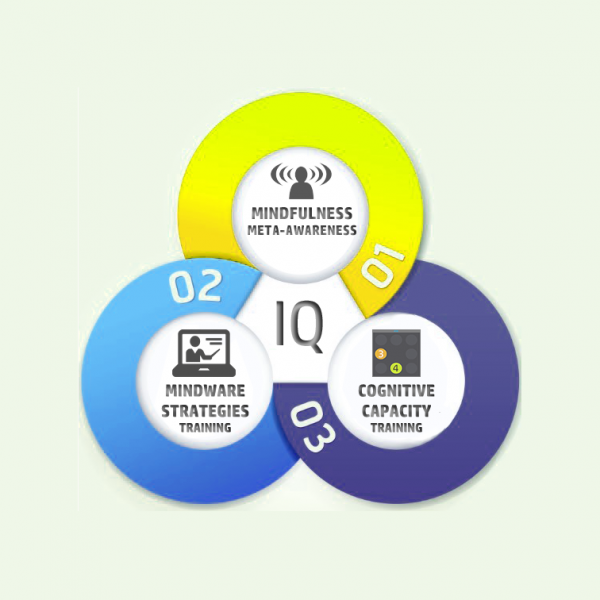Improving our ability to learn – and through learning gain in expertise and knowledge – is a core mission at IQ Mindware. Intelligence is useful in as far as it can be applied to further our goals – and one of our preferred strategic goals in life should be to gain more learning capacity, expertise and knowledge in our chosen areas.
Learning: Definition & Examples
At its most general level, learning is about information processing resulting in structural change. Cutting across psychology, neuroscience, machine learning (AI), organizational psychology and behavioral ecology, learning can be defined as (ref):
a structured updating of system properties based on the processing of new information that results in better adaptation, performance or competence
But for the purposes of brain based learning for practical outcomes, we can define it as (ref):
The capacity… to acquire or develop new, memories, knowledge or skills based on experience
Scientific Basis
Acquiring complex, cognitively challenging knowledge and skills depends on the birth of new brain cells (neurogenesis) in part of the brain called the hippocampus (review). There is a daily production of several thousand (e.g. 5000-10,000) new hippocampal neurons; some of these cells will survive and integrate into functional neural circuits as learning occurs, as but within just 2 weeks many will die through programmed cell death.
Different interventions are needed for cell production and cell survival. Aerobic exercise can result in a dramatic (e.g. 50%) increase in brain cell production in just 2 weeks and four-fold over two months (ref, ref). By contrast, stress (physical or social) dramatically reduces the amount of new brain cells produced in the hippocampus (ref).
Research indicates that the following conditions are need to be met for optimal brain cell survival:
- The learning experience should be between one and two weeks after the birth of the new cells (ref).
- The learning task must be cognitively challenging. Easier tasks do not result in cell survival (ref. ref).
- The learning process must be successful – there is a strong positive correlation between how well we learn and the number of surviving cells (ref, ref).
- The task-learning must involve sustained effortful / concentration, and that more effort results in more cell survival (ref).
Enriched environments with opportunities for learning, social interaction, exploration, and physical activity – such as you may get on an active, exploratory holiday – also help with brain cell survival (ref)
Sleep
Regular sleep also greatly benefits brain cell survival and the hard-wiring of hippocampal neural circuits that encode our learned skills (ref). Promoting adult hippocampal neurogenesis may be a mechanism by which sleep supports learning and memory processes. Sleep deprivation disturbs memory formation and negatively modulates hippocampal cell survival (ref). Even mild sleep restriction may interfere with the increase in neurogenesis that normally occurs with hippocampus-dependent learning (ref).
IQ Mindware Learning Exercises
1. Mindfulness / Meta-Awareness
Try to monitor in the learning process whether you are experiencing success and progress or not. Without clear success, the neural circuits in the hippocampus that encode new knowledge and skills do not become hard-wired. Also monitor how much effort and focus you are putting into your training: the more, the better.
2. Mindware Strategies
MAP (Mental and Physical) Training: Combine aerobic exercise (running, biking, swimming) for brain cell production, with deliberate skill learning or knowledge acquisition – making sure you experience progress and attain clear benchmarks of mastery. The combination of brain cell production and survival (from programmed cell death) optimizes the learning process greatly. You can start regular skill/knowledge training a week after you start the exercise, but from then on, combine both simultaneously so the two brain-processes of cell production and survival overlap.
MAP training programs will also benefit substantially from having regular, good quality sleep. Lack of sleep can undermine the advantages of this mental-physical intervention.
3. Cognitive Capacity (Gated DNB) Training
HighIQPro’s gated dual n-back training is another effective intervention to attain better hippocampus brain cell survival, and combines excellently with aerobic exercise. Unlike specific skill/knowledge learning, gated DNB training improves general information processing capacity. You can then apply this improved capacity to any specific learning situation.


